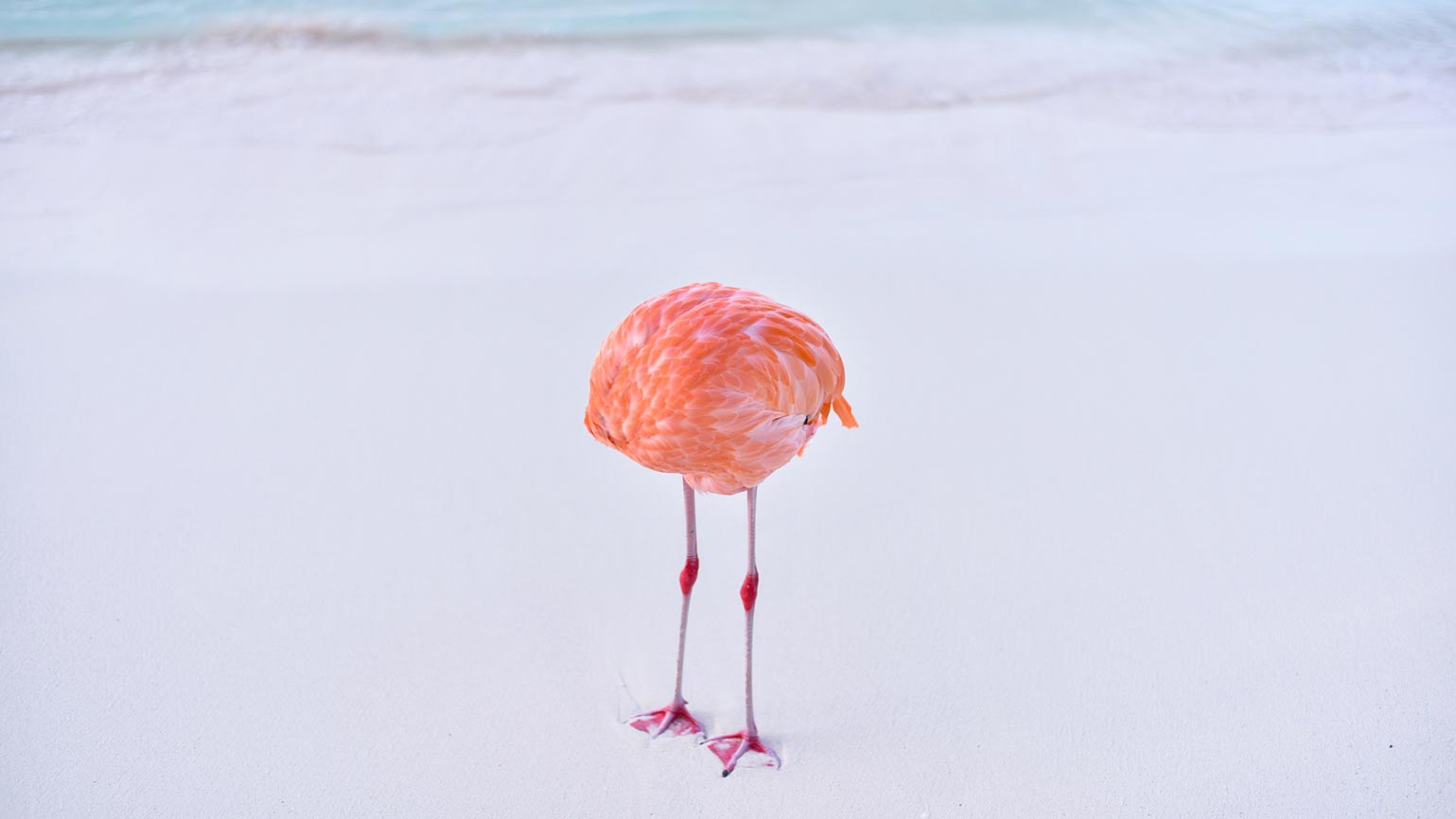

“Nature still out-does the machine,” or so says the tagline of Miles Astray‘s award winning shot “Flamingone”. The image won the People’s Vote and Jury Award in the Artificial Intelligence category of the 1839 Awards. Except there is a twist: this is a real photograph and nothing is artificial about it. This picture is the first real photo to win an AI award.
Miles tells DIYP that he was prompted (pun intended) to enter his photograph of a preening flamingo with its head hidden in the AI category of the awards because he wanted to inspire fiercer debate about the roles of AI in the art world and in general.
“AI is already capable of creating images, audios, and videos that can be indistinguishable from real content, which raises ethical concerns such as AI’s role regarding fake news and its potential to replace a human workforce and real content,” says Miles.
“I wanted to show that nature can still beat the machine, and that there is still merit in real work from real creatives. After seeing recent instances of AI-generated imagery beating actual photos in competitions, I started thinking about turning the story and its implications around by submitting a real photo into an AI competition.”
Miles adds that his photograph of the flamingo was “the ideal candidate,” because of its surreal qualities, and yet it is “entirely natural.”
Miles didn’t deliberately mislead the jury or public, but instead left the image caption somewhat vague. “We’ve all seen a flamingo, but have you ever seen a flamingone? Only an AI could make that up. Or did I just make that up?” he writes.
The picture was shortlisted for two awards: the jury’s award and the people’s choice award. In the end, it convinced both the jury and the public, winning the people’s choice award and finishing among the jury’s winners.
Miles admits to feely a little bit sorry for misleading the jury, but ultimately not sorry, considering the wider conversation that he started around AI imagery. Last year the winner of the Sony Awards denounced his prize when he revealed that the winning image was entirely AI generated. It seems fitting somehow then, to have the reverse.
“I’m glad to see that this experiment confirmed my hypothesis: there is nothing more fantastic and creative than Mother Nature herself,” says Miles who incidentally has no future ambition to work with AI.
“I don’t demonize the new technology and see its potential,” he says, “but currently I see its limitations and dangers even more clearly.”
You can see more of Miles Astray’s work on his website or follow him on Instagram.






